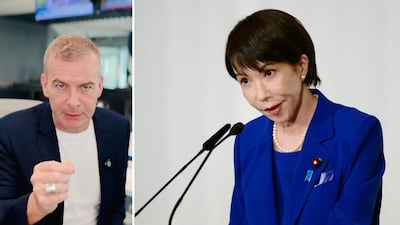The%20Genius%20of%20Their%20Age
Slow loris biog
From: Lonely Loris is a Sunda slow loris, one of nine species of the animal native to Indonesia, Malaysia, Thailand and Singapore
Status: Critically endangered, and listed as vulnerable on the International Union for Conservation of Nature red list due to growing demand in the global exotic pet trade. It is one of the most popular primate species found at Indonesian pet markets
Likes: Sleeping, which they do for up to 18 hours a day. When they are awake, they like to eat fruit, insects, small birds and reptiles and some types of vegetation
Dislikes: Sunlight. Being a nocturnal animal, the slow loris wakes around sunset and is active throughout the night
Superpowers: His dangerous elbows. The slow loris’s doe eyes may make it look cute, but it is also deadly. The only known venomous primate, it hisses and clasps its paws and can produce a venom from its elbow that can cause anaphylactic shock and even death in humans
House-hunting
Top 10 locations for inquiries from US house hunters, according to Rightmove
- Edinburgh, Scotland
- Westminster, London
- Camden, London
- Glasgow, Scotland
- Islington, London
- Kensington and Chelsea, London
- Highlands, Scotland
- Argyll and Bute, Scotland
- Fife, Scotland
- Tower Hamlets, London
Dubai works towards better air quality by 2021
Dubai is on a mission to record good air quality for 90 per cent of the year – up from 86 per cent annually today – by 2021.
The municipality plans to have seven mobile air-monitoring stations by 2020 to capture more accurate data in hourly and daily trends of pollution.
These will be on the Palm Jumeirah, Al Qusais, Muhaisnah, Rashidiyah, Al Wasl, Al Quoz and Dubai Investment Park.
“It will allow real-time responding for emergency cases,” said Khaldoon Al Daraji, first environment safety officer at the municipality.
“We’re in a good position except for the cases that are out of our hands, such as sandstorms.
“Sandstorms are our main concern because the UAE is just a receiver.
“The hotspots are Iran, Saudi Arabia and southern Iraq, but we’re working hard with the region to reduce the cycle of sandstorm generation.”
Mr Al Daraji said monitoring as it stood covered 47 per cent of Dubai.
There are 12 fixed stations in the emirate, but Dubai also receives information from monitors belonging to other entities.
“There are 25 stations in total,” Mr Al Daraji said.
“We added new technology and equipment used for the first time for the detection of heavy metals.
“A hundred parameters can be detected but we want to expand it to make sure that the data captured can allow a baseline study in some areas to ensure they are well positioned.”
MORE FROM ED HUSAIN: The UAE-Israel accord is a win for every Muslim
While you're here
Hussein Ibish: There are reasons for Democrats and Republicans to be happy
Rashmee Roshan Lall: Who are the women driving Joe Biden's success?
Why the Tourist Club?
Originally, The Club (which many people chose to call the “British Club”) was the only place where one could use the beach with changing rooms and a shower, and get refreshments.
In the early 1970s, the Government of Abu Dhabi wanted to give more people a place to get together on the beach, with some facilities for children. The place chosen was where the annual boat race was held, which Sheikh Zayed always attended and which brought crowds of locals and expatriates to the stretch of beach to the left of Le Méridien and the Marina.
It started with a round two-storey building, erected in about two weeks by Orient Contracting for Sheikh Zayed to use at one these races. Soon many facilities were planned and built, and members were invited to join.
Why it was called “Nadi Al Siyahi” is beyond me. But it is likely that one wanted to convey the idea that this was open to all comers. Because there was no danger of encountering alcohol on the premises, unlike at The Club, it was a place in particular for the many Arab expatriate civil servants to join. Initially the fees were very low and membership was offered free to many people, too.
Eventually there was a skating rink, bowling and many other amusements.
Frauke Heard-Bey is a historian and has lived in Abu Dhabi since 1968.





